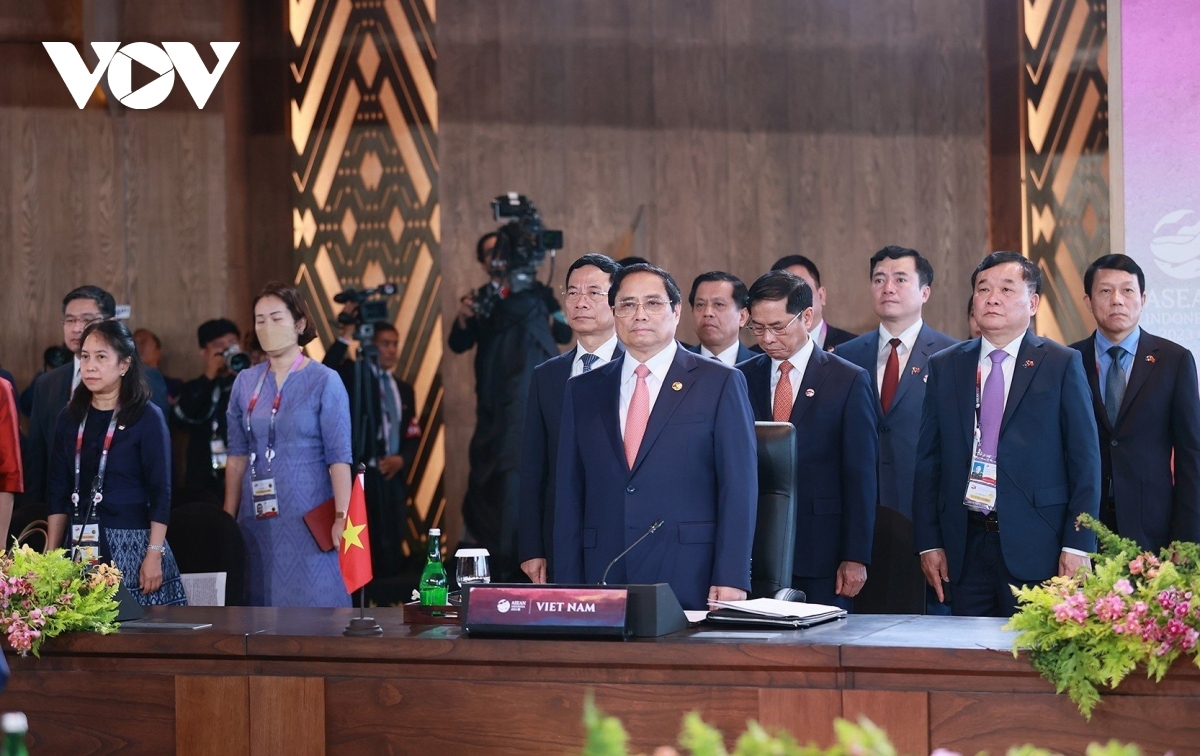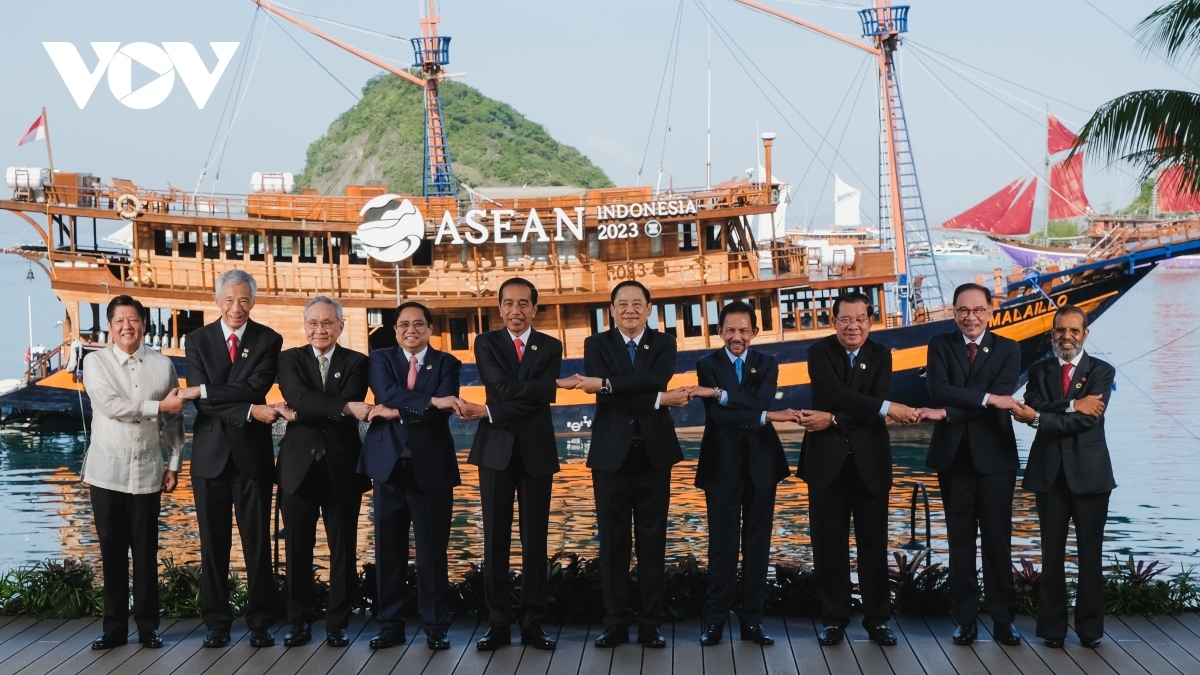Government leader affirms Vietnamese readiness in building ASEAN’s vitality
VOV.VN - Prime Minister Pham Minh Chinh has affirmed the country’s efforts and desire to work alongside other ASEAN member states in building the identity, value, vitality, and reputation of the bloc, while becoming involved in activities of the 42nd ASEAN Summit held in Indonesia from May 9 to May 11.
PM Minh Chinh alongside other ASEAN leaders, agreed on many important orientations for the regional bloc’s co-operation in 2023 and the coming years at the two-day 42nd ASEAN Summit.
During his stay in Labuan Bajo, PM Chinh engaged in nearly 20 activities, both bilateral and multilateral.
With the Summit running with the theme of “ASEAN Matters: Epicentrum of Growth”, PM Chinh and other participating leaders discussed and outlined the future of the ASEAN Community for the next 20 years, with stronger development goals and aspirations.
The Vietnamese Government leader highlighted three core factors to ASEAN’s characteristics, values, vitality, and reputation, which are maintaining independence and strategy self-reliance, turning itself into a growth epicentre, and better adapting to external shocks.
He emphasized that reinforcing solidarity and unity should be the key task for an independent and self-resilient bloc.
Given risks and uncertainties occurring in the global economy, the Vietnamese Government chief underlined the urgent need for the 10-member group to expand the intra market in order to promote recovery and sustainable development. This can be done by calling for efforts in negotiations to advance the ASEAN Trade in Goods Agreement, whilst concertedly and drastically rolling out projects on regional connectivity in terms of institutions, infrastructure, and people.
In the spirit of putting people at the centre, with this being the target and momentum of ASEAN Community building, the bloc should work to narrow its development gap, especially in remote areas and sub-regions, he went on to say.

To achieve the goal of aspirations for peace, security, stability, and prosperity, he appealed to ASEAN member countries to unite in building self-resilience and solidarity, unlock development resources, and raise breakthrough initiatives aimed at building the ASEAN Community, thereby helping the bloc turn itself into a growth epicentre both regionally and globally.
PM Chinh’s proposals were duly received support and were appreciated by other ASEAN leaders.
During the course of his stay, he attended dialogues between leaders of ASEAN member states and representatives of the ASEAN Inter-Parliamentary Assembly (AIPA), the ASEAN Business Advisory Council (ABAC), and the High-Level Task Force on ASEAN Community’s Post-2025 Vision.
He also held bilateral meetings with Indonesian President Joko Widodo, Laotian PM Sonexay Siphandone, Cambodian PM Hun Sen, Sultan of Brunei Haji Hassanal Bolkiah, Singaporean PM Lee Hsien Loong, Malaysian PM Anwar Ibrahim, Philippine President Ferdinand Marcos Jr., and Prime Minister of Timor-Leste Taur Matan Ruak.
At these meetings, PM Chinh and leaders of ASEAN member states discussed the implementation of agreements, commitments, and measures which seek to bolster ties, with specific and substantive contents assessed.
The Vietnamese leader’s participation in the 42nd ASEAN Summit and related activities affirms that the country makes positive, proactive, and responsible contributions to strengthening ASEAN solidarity whilst effectively responding to challenges. It also indicates the country’s priorities in terms of strategic infrastructure connectivity, digital transformation, green transformation, food security, energy, sub-regional development, and response to climate change. This therefore affirms the role, image, and prestige of ASEAN, thereby contributing to the building of the ASEAN Community and upholding the regional grouping’s principled stance on international and regional issues.
The activities are an effective implementation of the external policy of the 13th National Party Congress on continuing to promote and improve the efficiency of foreign affairs and international integration and Directive 25 of the Secretariat on enhancing and raising the level of multilateral diplomacy by 2030.

